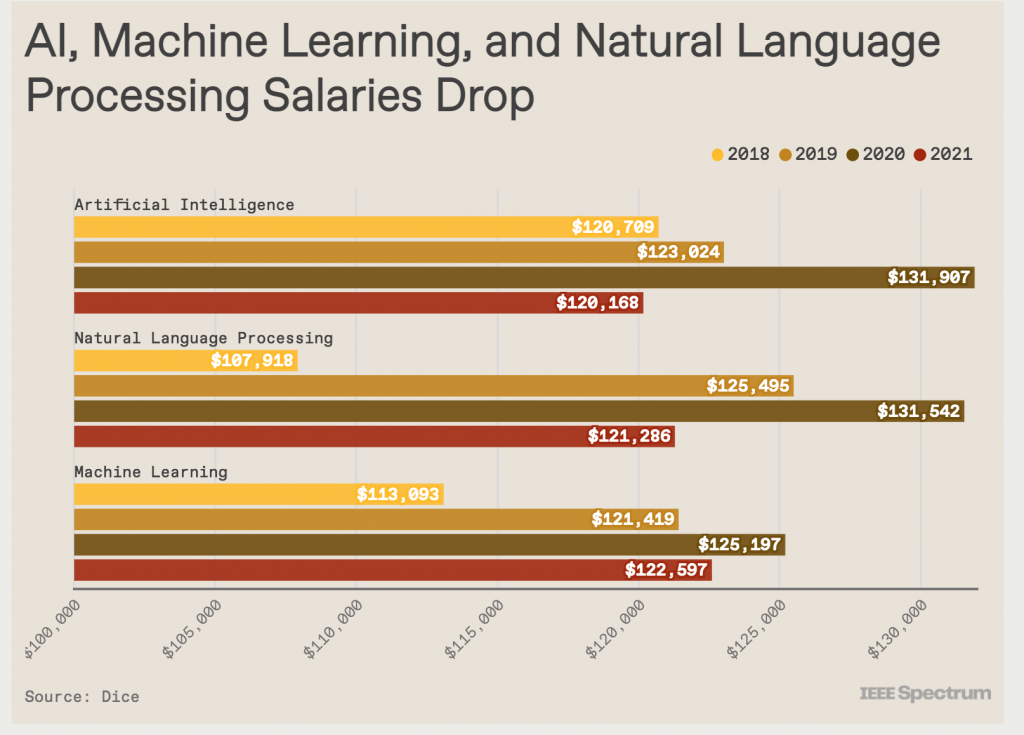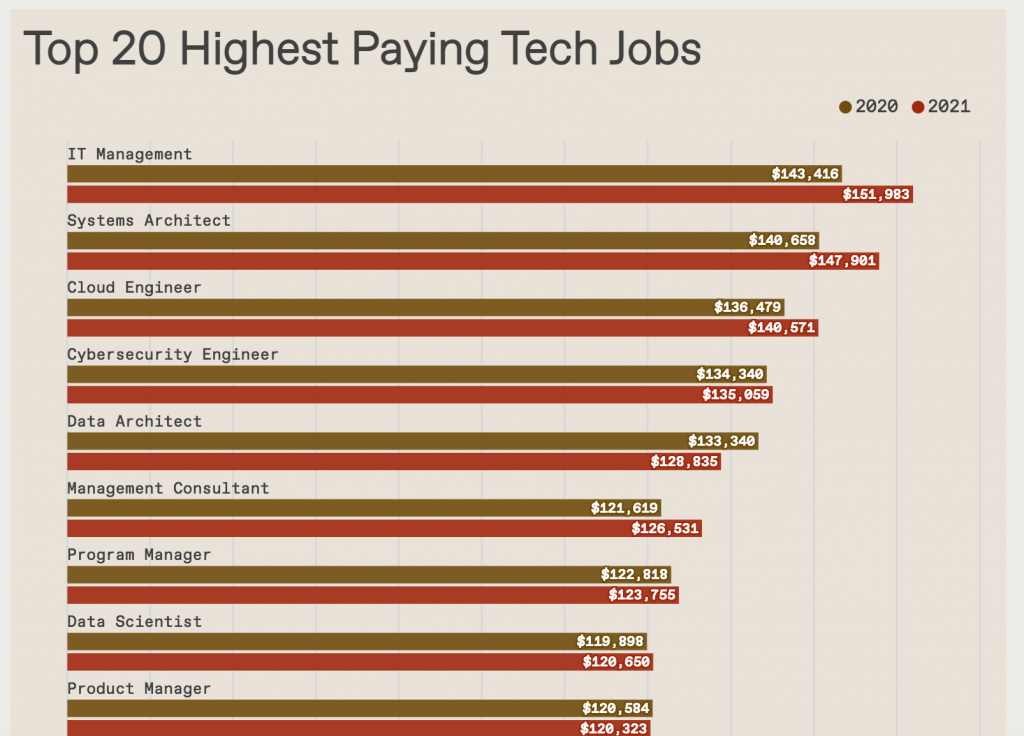
A scarcity of specialists in Solr, an open-source enterprise search platform, drove that average salary to the top of the charts.
Salary Websites Cite Statistics Showing Tech Industry Wages Shifting Areas, Locales
Some wages are going up. Some wages are going down. According to writer Tekla S. Perry, it is hard to pinpoint exactly why. The senior editor for spectrum.ieee.org included a lot of data in her story about who is making money and who isn’t when it comes to AI, IT, machine learning and more.
Overall, 2021 was a good year for tech professionals in the United States, with the average salary up 6.9 percent to $104,566, according to online recruitment firm Dice. Dice released these numbers last month as part of its annual Tech Salary Report.
Hired, another online job-search firm, saw bigger dollar figures than Dice in its 2021 U.S. tech salary data—a $152,000 average—but reported a 1.1 percent overall dip from 2020, a change it attributed to a shift in hiring toward professionals who are earlier in their careers.
“There are a variety of factors likely contributing to [these] decreases,” Dice chief marketing officer Michelle Marian told IEEE Spectrum, “with one important consideration being that more technologists are learning and mastering these skill sets. The increases in the talent pool over time can result in employers needing to pay at least slightly less, given that the skill sets are easier to find. We have seen this occur with a range of certifications and other highly specialized technology skills.”
Perry has several charts that show at a glance who is continuing to make better than average wages and in which see ctor you might expect to see some trying to catch up.

The movement of technology jobs from Silicon Valley to the Texas market is very real and has proven lucrative for certain cities and the companies located in them. In particular, Austin has a high rate of growth.
In 2021, as in 2020, major tech companies touted plans to relocate from Silicon Valley to Austin. However, Silicon Valley’s tech salaries, already higher than Texas averages, increased their lead slightly, climbing 5 percent to $133,204 compared with Austin’s 4.6 percent to $109,176. (These numbers do not consider the cost of living, which generally gives Austin a significant edge, particularly if you want to buy a house). But the biggest growth in salaries came outside these two tech hubs, with Seattle, Los Angeles, Atlanta, Philadelphia, and Chicago all recording double-digit increases, according to the Dice analysis.
read more at spectrum.ieee.org







Leave A Comment